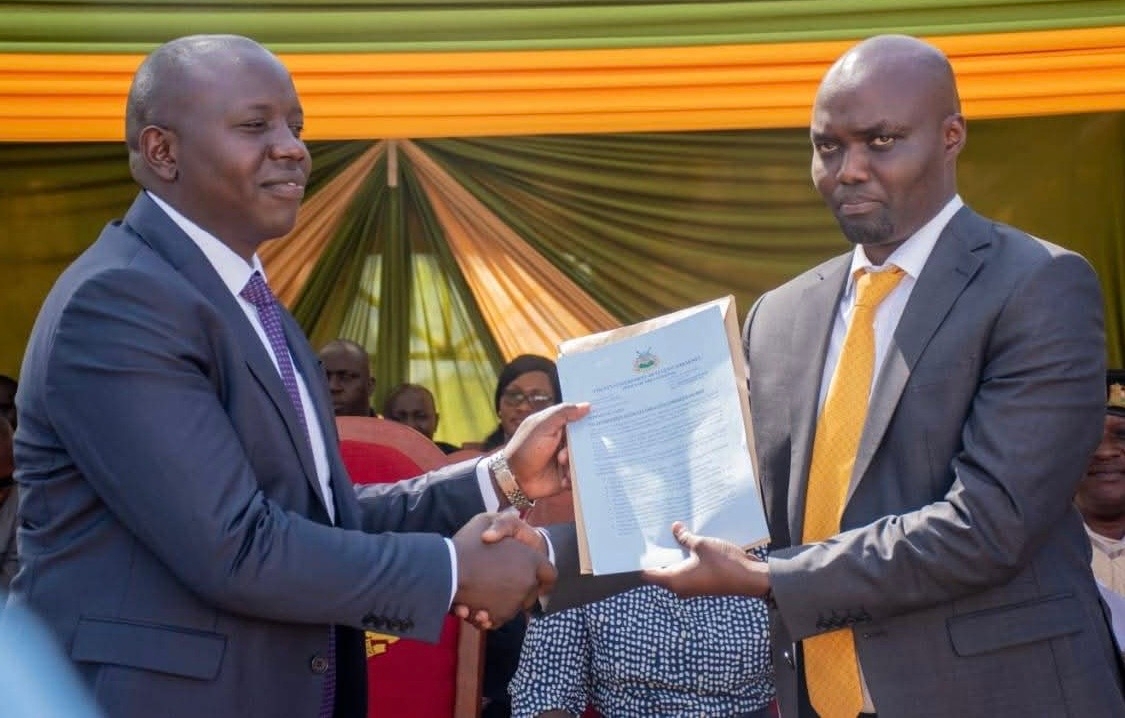Kenya’s correct debt position cannot be told, thanks to inconsistencies in records kept by the National Treasury and state agencies implementing programmes with the borrowed cash.
In a new report released amid the raging debate on public debt, Auditor General Nancy Gathungu says the National Treasury and implementing agencies do not share information on loans.
“This implies that the country’s true debt position may not be accurately reported,” she said.
It has also emerged that the government has been paying billions after taking loans it is not ready to spend.
As of the end of the financial year on June 30, 2023, a total of Sh55 billion had been paid for loans the government acquired before projects were ready to take off.
Had state agencies prepared adequately, taxpayers would have been spared the avoidable burden or the funds used to plug budget gaps.
A September 2022 report revealed that 14 loans alone exceeded preparation timelines and accrued Sh1 billion in commitment fees.
In 2023 alone, 32 projects accrued Sh1.9 billion in commitment fees following delays in project take-off.
State agencies, the report reveals, initiated loans before acquiring land, or compensating for the same, and before signing contracts. The situation is prevalent in energy and road projects.
Gathungu said such payments are avoidable if the government agencies prepare adequately and implement projects on time.
“Payment of avoidable fees compromises services delivery and value for money for taxpayers,” the Auditor General said.
The revelations could lend credence to concerns by reformists who during the recent protests demanded an audit of the country’s public debt.
As noted by President Ruto’s adviser on financial matters David Ndii, the Auditor General audits the public debt every year.
And like was the case during the days of former Auditor General Edward Ouko, the office has yet again flagged irregularities in the way the debt is handled.
In a report dated June 2024, Gathungu concludes that inconsistencies between Treasury records and agency ledgers stand out.
A cursory look at the balances, as reported by the National Treasury and Central Bank of Kenya, tells of the disconnect.
While the National Treasury stated that the total public guaranteed debt stock was Sh10.420 trillion as of March 2024, CBK said the stock was Sh10.398 trillion.
The auditor’s records put the figure at Sh10.264 trillion (as of June 30, 2023 ). A separate audit review of loans issued between 2010 to December 2021 also revealed unexplained discrepancies between loan balances. “This is indicative of a lack of periodic loan reconciliations,” Gathungu said in the report on commercial loans.
The audit further revealed that loans are not exclusively being used for development, confirming suspicion that the government uses loans to fund recurrent expenses.
Gathungu further raised concerns that the total cost of loans is not fully disclosed, citing details of other fees such as interest due to late payments.
“This is making it difficult to establish total cost implications of late payments,” she said.
Following the push by Gen Zs, President William Ruto last Friday appointed a task force to conduct a forensic audit of the public debt.
His bid has hit a snag after a court stopped the team, meaning Kenyans are likely to take longer to know the actual state of public debt.
The Law Society of Kenya, through its president Faith Odhiambo, however, has rejected its nomination to the team.
A petition is before the High Court challenging the constitutionality of the task force.
The petitioners, Magare Gikenyi – a Nakuru-based doctor - and Eliud Matindi, have secured court orders halting the review. They argue that the office of the Auditor General is independent and sufficient to conduct the required review.
Gikenyi and Matindi say allowing the task force to proceed with the review would be “a waste of scarce public resources.”
Kenyans agitating for reforms and accountability have cast doubt on the amounts reported as paid up as well as the outstanding debt.
In what could back their claim, Gathungu said her review revealed that transparency of debt transaction records was wanting.
“The National Treasury should ensure transparency while recording debt transactions for better understanding and making informed corrective decisions,” her report reads in part.
The auditor this week published eight reports on public debt, detailing the problems with the country’s loans.
State entities, the reports show, are not adequately adhering to loan due dates, hence exposing taxpayers to additional charges.
“Adherence to loan due dates was observed to be approximately below average as more than half of the payment advises were processed after loan due date,” the report reads.
It has also emerged that the National Treasury, Controller of Budget, Central Bank of Kenya and the Attorney General, have no clarity of their function as loans fall due.
At the same time, the auditor has flagged an additional CBK charge of 1.5 per cent on the loans, saying it is not formally agreed and expressed across all functions.
“This leads to inadequate transparency in debt operations,” the auditor said, calling on Treasury, CoB and CBK to reach service level requirements for processing repayments.
It has also been established that Treasury and state agencies have no measures in place to cancel loans for non-performing or stalled projects.
The government has further been castigated over delays in the provision of counterpart funding for loan-funded projects.
Also noted is that the process of paying contractor claims is lengthy and cumbersome, posing liquidity challenges that slow the progress of works.
Auditors also established that implementing agencies are barely involved in the pre-loaning process, making it hard for them to prepare on time.
Other reviews also revealed that loan contracting operations were not effectively carried out to minimise the risks and costs of borrowing.
A performance audit established that there was inadequate public participation during the identification of projects to be funded by the loans.
It emerged that financiers approach ministries directly before projects are conceptualised by the users.
“Interviews further revealed that financiers indicate their intentions to finance selected projects from the ministries’ strategic plans,” a report published last October reads.
The audit further concluded that there were risks that the loans contracted may not be the most cost-effective in the market.
It is also turning out that state agencies ignore the advisories of the Attorney General, posing challenges with project implementation.
















![[PHOTOS] Family, friends receive body of Raila’s sister, Beryl](/_next/image?url=https%3A%2F%2Fcdn.radioafrica.digital%2Fimage%2F2025%2F11%2Fdfe6a9bf-ede1-47a4-bdc0-4f564edb03dd.jpeg&w=3840&q=100)
